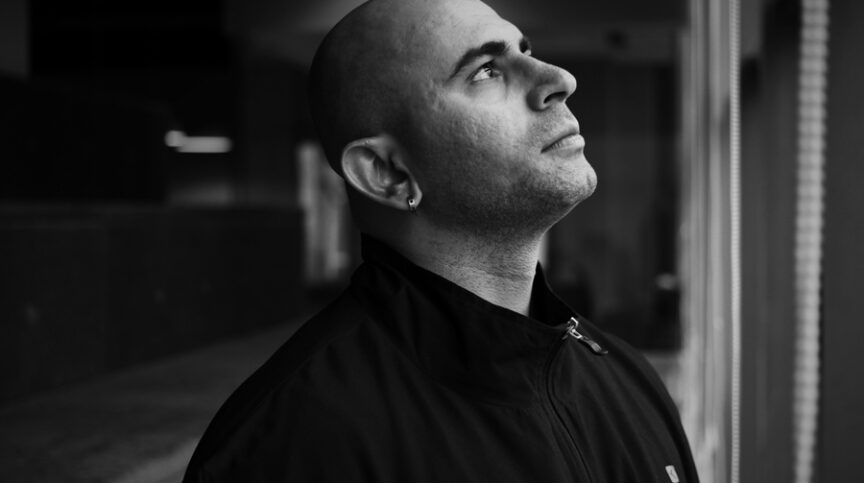Is it easy to forgive someone who’s wronged you? Perhaps not for everyone, and not in every situation. Think of a time in your life when you forgave someone and why you did that, what you felt, and what your perspective is now on that part of your past. To really understand the magnificent deed of forgiveness from the Islamic perspective, however, one needs to first establish some foundational matters. First, the role of Allah SWT in our lives is not limited to ritual worship such as prayer, the recitation of Qur’an, fasting, or modest clothing. Although all these acts of worship are important, we also emphasize that in Islam there is a great weight to good character, how we treat other people, and how we morally comport ourselves in this life. We can look at good character as its own act of worship, obligatory upon every Muslim, just as prayer is an obligation.
Once we recognize the importance of character and the necessity of cultivating specific traits, we then emphasize our relationship with the creation as an extension of our relationship with Allah SWT. Based on numerous verses of the Qur’an and authentic ahadith, we are presented with an Islamic worldview that connects us in character, mind, and heart to both the Creator and the creation, with numerous examples: be merciful to other people and Allah will be merciful to you; spend in charity on others and Allah will spend (i.e., provide or bless) on you; give food and drink to those who need it and Allah will quench your thirst on the Day of Judgment and protect you; conceal the faults of other people (in certain situations, as there are important exceptions), and Allah will conceal your faults in this life and the next; alleviate the hardships of other human beings and Allah will alleviate your hardships; pardon and forgive others and Allah will pardon and forgive you. These are just some of the many examples that demonstrate how good character connects us in a beneficial way both to the creation and to the Creator.
Emphasis on Those Closest to Us
Islam emphasizes that the people closest to us deserve the most priority and care. Prophet Muhammad (s) was asked, “With what were you sent?” He (s) said: “He [Allah] has sent me to uphold the ties of kinship, to break the idols, and to proclaim the Oneness of Allah, not associating anything with Him” (Muslim). Taking care of our family and kin includes the rights of parents, spouses, children, siblings, other relatives, and even neighbors. It is important to note that we are not to be forgiving, kind, and compassionate to people in public, perhaps to protect one’s reputation, while being abusive and holding grudges against family members at home. In fact, “…the best of you is he who is best to his family…” (al-Tirmidhi) and, in another version, “The best of you are those who are best to their wives” (al-Tirmidhi). In our contemporary time people have become very individualistic, even self-centered, which can lead to holding grudges over insignificant or petty matters and cutting off family members much too easily.
Some people assume that upholding the ties of family and kinship is only when they interact with us in a pleasant or appropriate way and things, therefore, are easy. The reality is that the true test of character and faith is when things get difficult, and your standard of responding is according to a standard that is independent of other people behaving well. The Prophet (s) said, “The one who maintains a relationship with his relatives only because they maintain a relationship with him is not truly upholding the ties of kinship. The one who truly upholds those ties is the one who does so even if they break off the relationship” (Bukhari).
A man said to the Prophet (s), “I have relatives with whom I try to keep in touch, but they cut me off. I treat them well, but they abuse me. I am patient and kind towards them, but they insult me.” The Prophet (s) said, “If you are as you say, then it is as if you are putting hot dust in their mouths. Allah will continue to support you as long as you continue to do that [act well toward them]” (Muslim).
Forgive and Allah Increases Your Honor
What about forgiveness in the case of being wronged and not seeing any remorse? It might be that the wrongdoer refuses to acknowledge what they have done or accept responsibility. This could be a situation in which a family member may have said something harsh, a friend failed to fulfill your right, or a community member may have done something hurtful. The general Islamic approach is that it is best to forgive. Think, for instance, about the slander against Aishah (r) and how hurtful it was for her, her reputation, her family, the Prophet (s), and the rest of the believing community. When her father, Abu Bakr, found out that one of the individuals behind the spreading of the slander was a relative, one who was poor and financially supported by Abu Bakr, it was even more upsetting. Imagine yourself in his shoes as a father, or in the shoes of Aishah as a wife and daughter. How would you treat this relative knowing what they did to you was extremely oppressive and harmful? The verses in Surat a-Nur, revealed after this incident, include a wisdom expressed in the most eloquent of speech: “Let them pardon and overlook. Would you not love for Allah to forgive you? Allah is forgiving and merciful” (24:22). Abu Bakr forgave his relative and in fact increased his financial support of him, hoping for the forgiveness of Allah.
Sometimes we’re hurt by ignorant people, and we reflect on Allah’s command to “Show forgiveness, enjoin what is good, and turn away from the ignorant” (Qur’an 7:199). In other cases, we reflect on the traits of the muhsinoon – the believers who do good – and we find them summarized in a verse with certain characteristics: “The believers are those who spend in charity during ease and hardship and who restrain their anger and pardon the people, for Allah loves the doers of good” (Qur’an 3:134).
Is it easy to forgive? Often it is not, and that is why Allah SWT emphasizes the perseverance and patience required to do so: “Whoever is patient and forgives, verily, that is among the matters of steadfast determination” (Qur’an 42:43). In fact, the perseverance and patience required to forgive reflects a powerful strength in the believer, a strength of faith and character, and a full reliance and trust in Allah, the Ever-merciful.
The Wisdom of Forgiveness
In some cases, what prevents a believer from forgiving a person who has wronged him is that it can be hard to let go of feelings of hurt, disappointment, anger, or resentment. But forgiveness can bring healing, emotionally and mentally. And, of course, there are religious benefits which the Prophet (s) pointed out: “Charity does not decrease wealth, no one forgives except that Allah increases his honor, and no one humbles himself for the sake of Allah except that Allah raises his status” (Muslim). So, it is honorable to forgive, and the act of forgiveness increases one’s honor.
I recognize in the writing of this article that there are many exceptional cases to the general emphasis on forgiveness — there are cases of ongoing physical or emotional abuse that need to be remedied immediately. Thus, there are individuals in the midst of such abuse who may not relate to what is being shared here about forgiveness. I urge those who need help to reach out to organizations, Islamic centers, and community leaders to help them. Beyond that, I urge readers to consider the general importance of forgiveness, the value of its reward compared to holding on to feeling wronged, and the liberation of the heart from grudges towards others.
Remember that, ultimately, we are all in need of Allah’s mercy, especially because of how often we make mistakes and fall short. We pray for Allah to forgive us and be merciful to us. And we do this instinctively, without a second thought. But we hold onto grudges against others, sometimes for an entire lifetime. We can, however, cultivate the trait of forgiveness, bring healing to our own self and to others. This is the height of wisdom and common sense. As the Prophet (s) said, “Be merciful to others and you will receive mercy. Forgive others and Allah will forgive you” (Musnad Ahmad).





